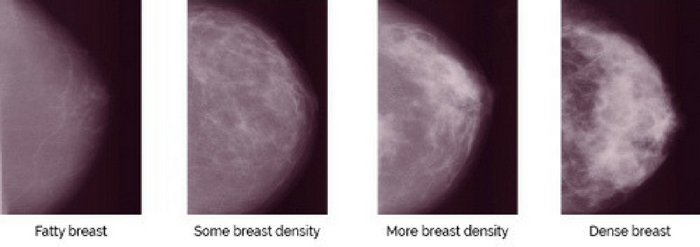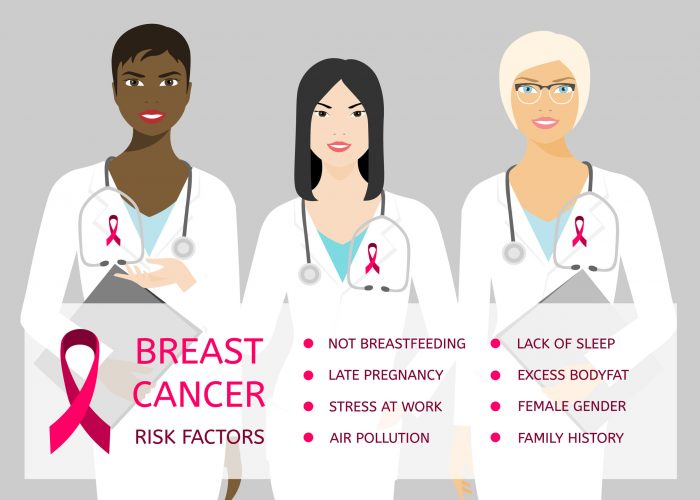Pollution Linked with Higher Risk for Breast Cancer Precursor

A new study shows that women who live in heavily polluted areas may be more likely to have dense breasts, which is a known risk factor for breast cancer. [1]
The study, published in Breast Cancer Research, finds that the chance of having dense breasts rose by 4% for every 1-unit increase in fine particle concentration. (Pollution is measured by the levels of fine particles in the atmosphere.) [2]
Lead researcher Dr. Lusine Yaghjyan says:
“We found a positive association between fine particle concentration exposure and breast density but an inverse association between ozone exposure and breast density. This is an intriguing result that warrants further investigation to unpick any possible biological mechanism that might cause ozone exposure to reduce a woman’s chance of having dense breasts.” [1]
Dense breasts have less fatty tissue and more non-fatty tissue than normal breasts. They also tend to have more gland tissues that drain milk, and are up to six times more likely to develop cancer.
Dense breasts have always been considered hereditary, but the new study suggests they may due to environmental factors. Additionally, mammograms have a harder time spotting potentially cancerous areas in dense breasts, increasing the likelihood that cancer may go undetected.

Yaghjyan says:
“Breast density is a well-established and strong breast cancer risk factor so future studies are warranted to determine if the observed associations are causal, which if confirmed may have implications for risk prevention.” [2]
For the study, researchers looked at nearly 280,000 women in the U.S. with an average age of 57. The participants were all taking part in the Breast Cancer Surveillance Consortium from 2001 to 2009. Six in 10 of the women studied lived in urban areas and the rest lived in rural areas.
Women with dense breasts were found to be 19% more likely to have been exposed to higher concentrations of fine particulate matter (PM2.5). [2]
Catherine Priestley, clinical nurse specialist at the charity Breast Cancer Care says:
“Breast cancer is a complex disease, and it is not possible to pinpoint any one cause.” [3]

However, pollution has been linked to breast cancer in other studies. Researchers from the University of Buffalo said in 2012 that:
“…higher air pollution exposure at birth may alter DNA methylation, which may increase levels of E-cadherin, a protein important to the adhesion of cells, a function that plays an essential role in maintaining a stable cellular environment and assuring healthy tissues.”
Furthermore, in a 2013 report, the World Health Organization’s International Agency for Research on Cancer (IARC) stated definitively that outdoor air pollution can cause cancer. The group said in the report:
“Recent estimates suggest that the disease burden due to air pollution is substantial. Exposure to ambient fine particles was recently estimated to have contributed 3.2 million premature deaths worldwide in 2010, due largely to cardiovascular disease, and 223 000 deaths from lung cancer. More than half of the lung cancer deaths attributable to ambient fine particles were projected to have been in China and other East Asian countries.”
Sources:
[1] Medical Daily
[3] The Sun
